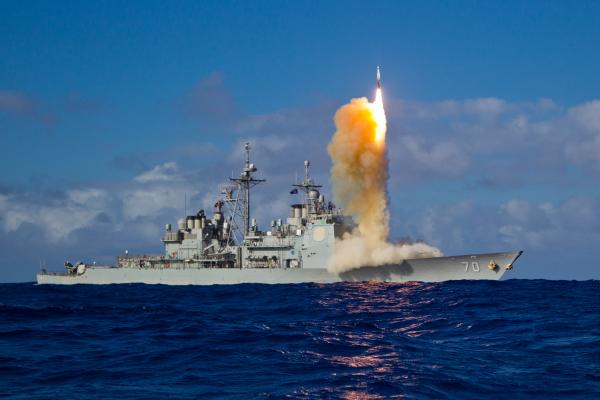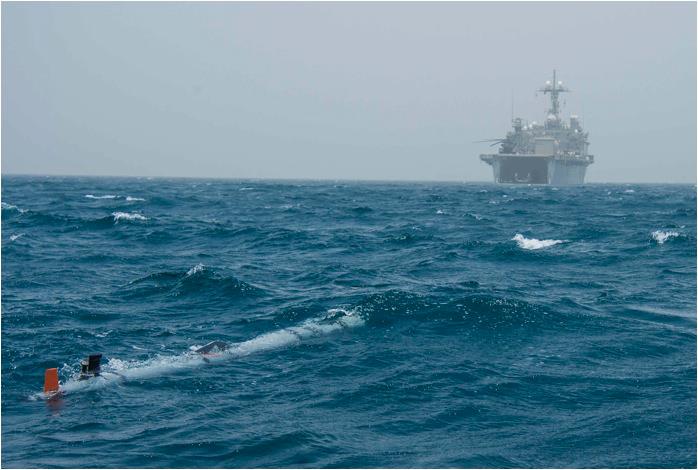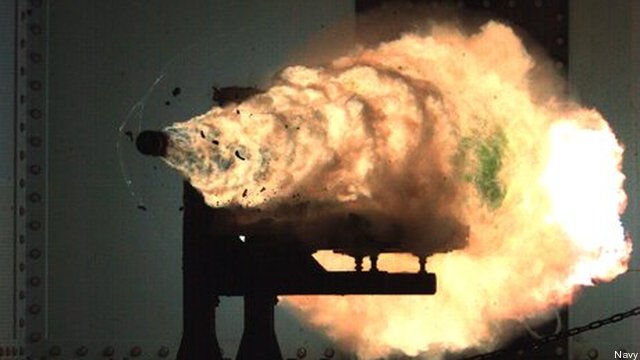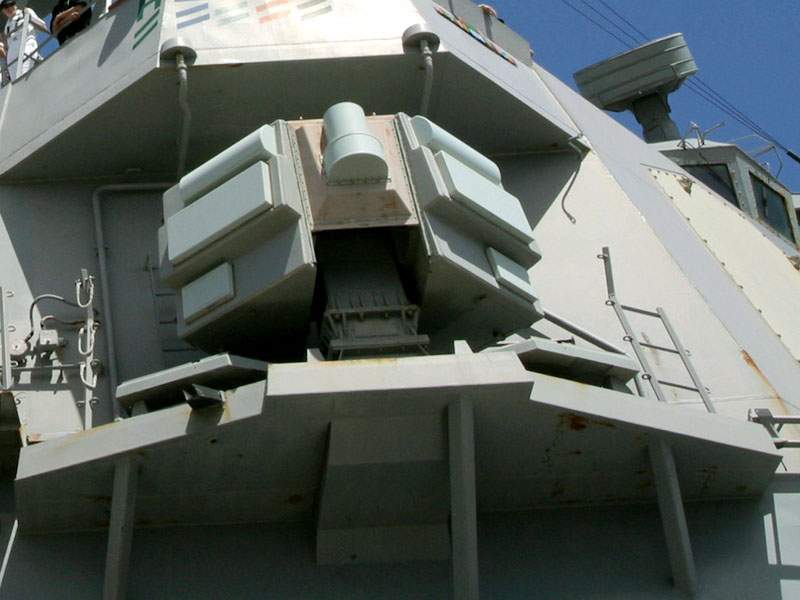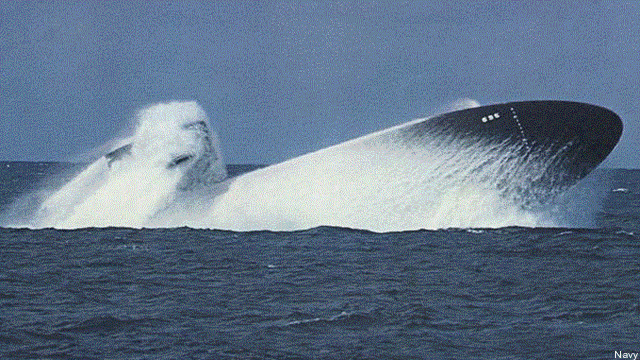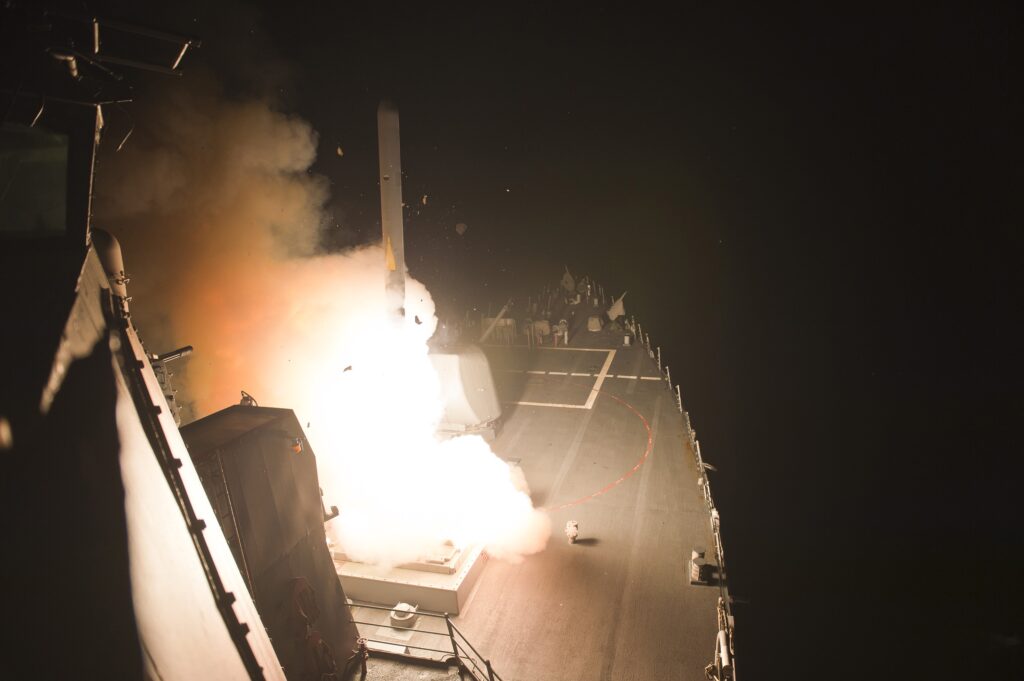Aegis Ambivalence: Navy, Hill Grapple Over Missile Defense Mission
Posted on
WASHINGTON: Sometimes success is its own punishment. Shooting down ballistic missiles is one of the Navy’s most high-tech, high-profile capabilities — and it’s one of the most popular with Congress as well. But as demand for missile defense increases at what the Chief of Naval Operations has called an “unsustainable” pace, it’s an ever-greater burden… Keep reading →
We Can’t Always Count On Smart Bombs: CSBA
Posted on
Washington’s gotten used to war on easy mode. Policymakers may debate the strategic value of air campaigns in places like Syria, Iraq, and Yemen, but they assume the smart bombs will hit their targets. One bomb, one target, one boom. That assumption is no longer safe, says a new study from the influential Center for… Keep reading →
‘Carrier Gap’ In Gulf Is A Symptom, Not A Crisis
Posted on
The geostrategic sky isn’t falling because the US won’t have an aircraft carrier in the Persian Gulf region for a period this fall. Land-based aircraft will do an excellent job of striking ISIL, analysts say, while smaller ships are better suited to combat Iran in the tight confines of the Gulf. “This is not an example of American… Keep reading →
The 7-11 For Robot Subs: Underwater Plug And Stay Hubs
Posted on
Think it’s hard to find a place to charge your smartphone at the airport? Try finding a power outlet in the ocean. Imagine you’re a robotic Navy mini-sub whose batteries are running low after a long mission monitoring, say, traffic around Chinese artificial islands in the South Pacific. Currently, you’d have to recharge at a land… Keep reading →
Save Our Seoul: Can Lasers & Rail Guns Protect Korea?
Posted on
WASHINGTON: How do you stop 1,000 missiles? Current missile defenses can’t. They’re designed to stop a small attack from a rogue state. But even rogue states like North Korea — let alone power players like China’s Second Artillery — can now throw more missiles at us than we have interceptors to shoot them down. That’s why the military, industry,… Keep reading →
Hill To Navy: Hurry Up On Rail Guns, Lasers
Posted on
WASHINGTON: Rail gun bullets move seven times the speed of sound. Laser beams fire at the speed of light. But Pentagon procurement? Not so fast. But with both Congress and the Navy Secretary expressing impatience, the Navy is accelerating its efforts to move both lasers and rail guns from the test phase into the fleet. “We’ve… Keep reading →
Navy Forges Ahead With New Surface Ship Electronic Warfare: SEWIP
Posted on
NAVY YARD: American warships are about to get much harder to kill. Armed with new electronic warfare systems, the US Navy “is taking back the spectrum,” Capt. Doug Small says. The great advantage of American warships has long been their ability to absorb punishment and to keep fighting. In the modern era, however, the best defense is electronic:… Keep reading →
Winning The War Of Electrons: Inside The New Maritime Strategy
Posted on
[UPDATED with comments from Rep. Randy Forbes, Cdr. Bryan Clark, & anonymous admiral] WASHINGTON: We must win the war of electrons in a more dangerous world. That’s the stark imperative behind the bland title of the new maritime strategy released today by the Navy, Marine Corps, and Coast Guard. “There is an offensive warfighting tone… Keep reading →
Transparent Sea: The Unstealthy Future Of Submarines
Posted on
WASHINGTON: Submarines have been America’s invisible advantage since World War II. But the oceans are getting more transparent. New detection technologies from low-frequency sonar to flashing LEDs — plus the big data computing power to enhance the faint signals they pick up — are making submarines much easier to detect. The same water-penetrating wavelengths, however, will… Keep reading →
Growing Teeth: Upgunning The Surface Navy
Posted on
Last week, the US Navy made waves by announcing two bold ideas for the surface fleet: a new concept of warfighting called “distributed lethality” — “If it floats, it fights” — and a new name for the controversial Littoral Combat Ship — now called a “frigate.” We asked Bryan Clark, a former special assistant to… Keep reading →

